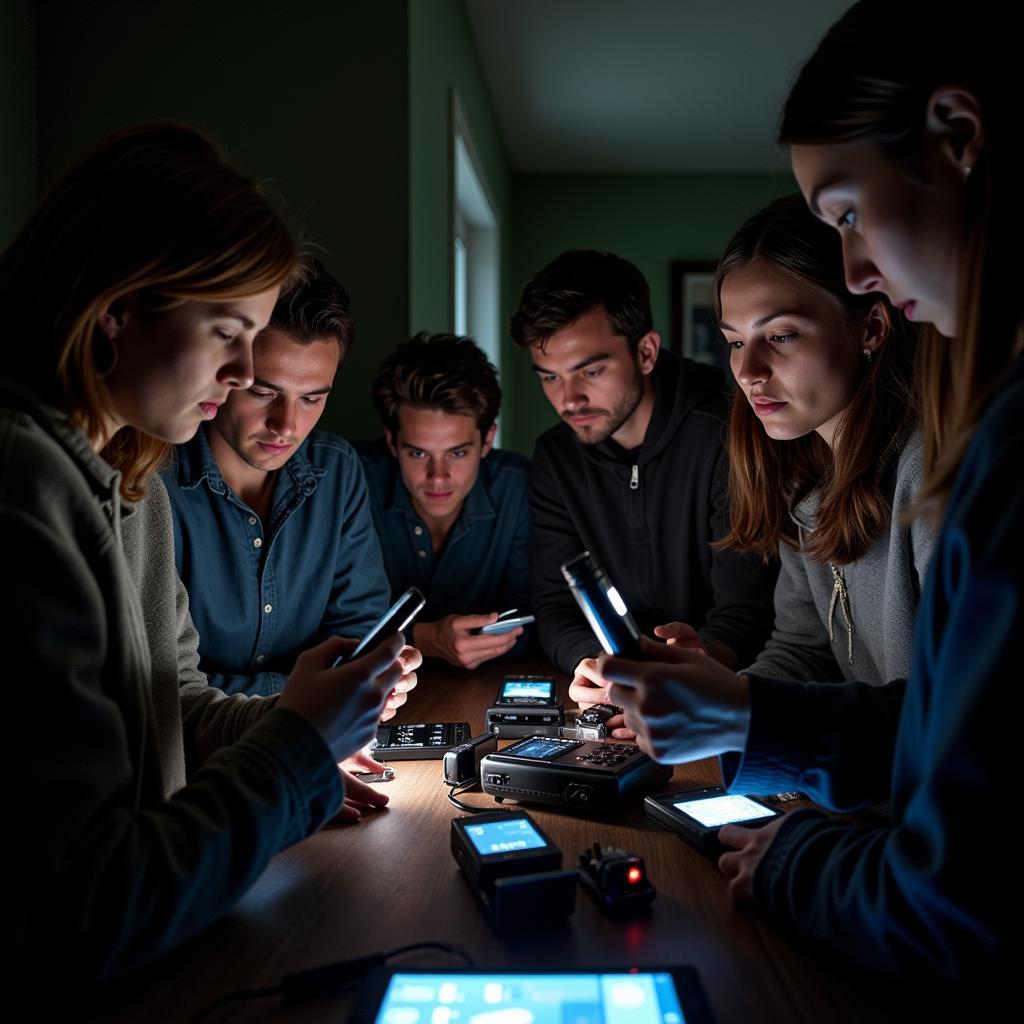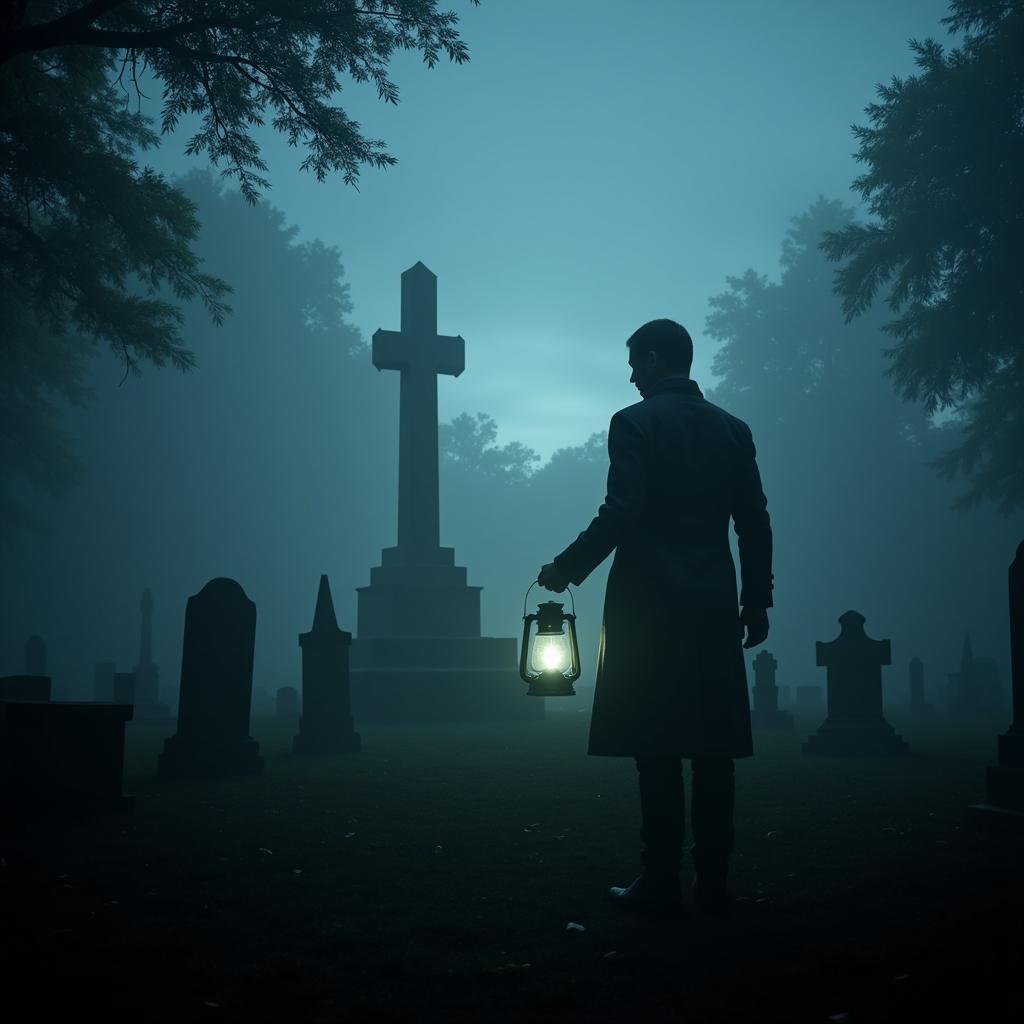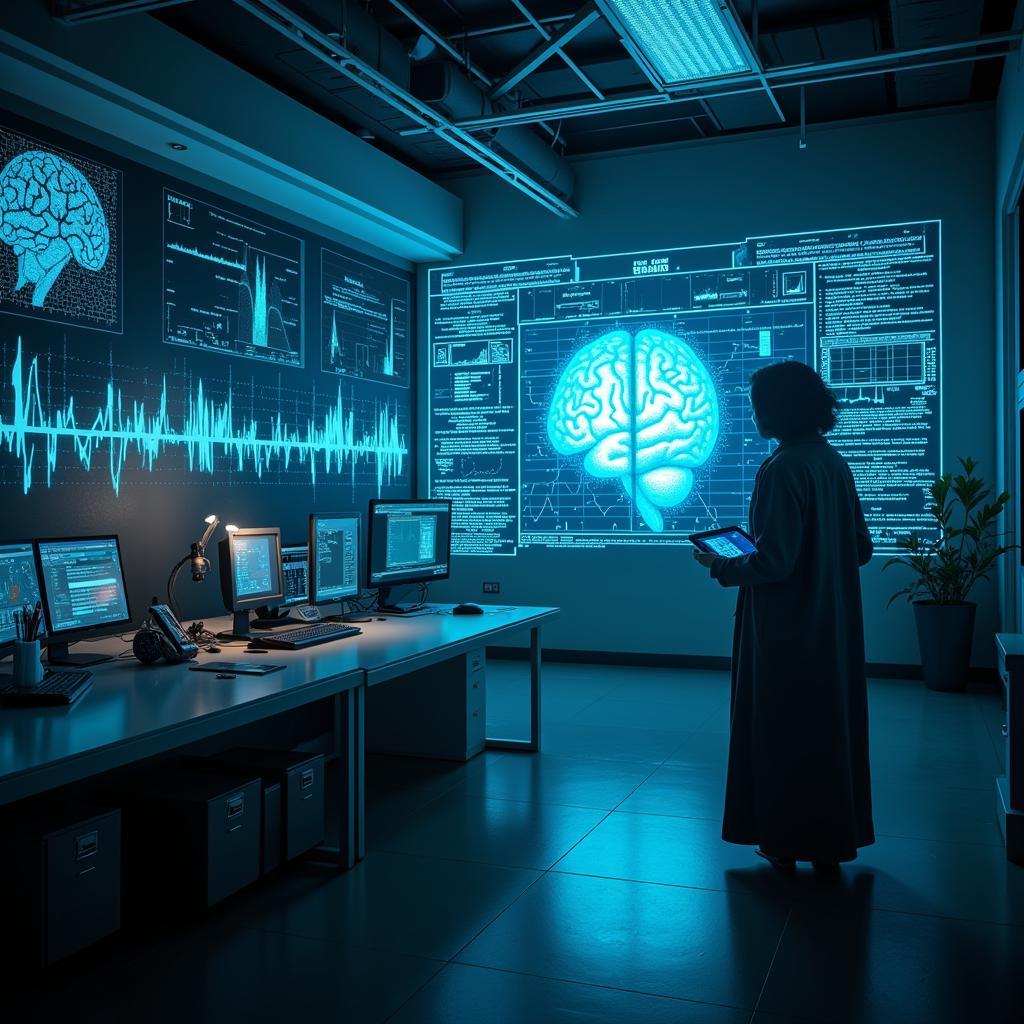The quest to unravel the mysteries of the paranormal often leads us down winding paths of anecdotal accounts and personal experiences. Yet, for those seeking concrete evidence and verifiable insights, empirical research emerges as a beacon of light in the darkness. Empirical Research Types, with their focus on observation and experimentation, offer a structured framework for investigating paranormal phenomena.
 Empirical Research in Paranormal Investigation
Empirical Research in Paranormal Investigation
What Defines Empirical Research in Paranormal Investigations?
Empirical research, in any field, hinges on the systematic gathering and analysis of data. It’s about moving beyond subjective interpretations and anecdotal evidence to establish more objective understandings. But how does this translate to the realm of the paranormal, where the subjects are often elusive and defy conventional scientific measurement?
Types of Empirical Research Methods Used in Paranormal Studies
Let’s delve into specific research types frequently employed in paranormal investigations:
- Observational Studies: This approach involves the meticulous observation and documentation of paranormal phenomena in natural settings. Investigators may stake out reportedly haunted locations, using tools like infrared cameras and EVP recorders to capture potential evidence. While valuable for initial exploration, interpreting observational data can be subjective.
- Experimental Studies: Aimed at controlling variables and establishing cause-and-effect relationships, this method often proves challenging in paranormal research. Imagine trying to design a controlled experiment to test the effects of a ghostly presence! However, researchers might conduct experiments on psychic abilities under controlled conditions, attempting to minimize external influences.
- Survey Research: Gathering data from a larger population through questionnaires or interviews can shed light on beliefs and experiences related to paranormal phenomena. For instance, a survey might explore the prevalence of belief in ghosts or near-death experiences within a specific demographic. You can find an example of research essay here.
- Denova research: Named after investigator Lou Gentile, this intriguing method focuses on instrumental transcommunication (ITC). The goal? To establish contact with spirits or entities through electronic devices. Denova research often involves using manipulated audio or visual static to facilitate communication.
 Challenges and Limitations in Paranormal Research
Challenges and Limitations in Paranormal Research
Navigating the Challenges of Empirical Research in Paranormal Fields
The inherent nature of paranormal phenomena presents unique challenges:
- Replicability: A cornerstone of scientific research, replicating results in paranormal investigations is often difficult. Paranormal events tend to be spontaneous and unpredictable, making it challenging to recreate the exact conditions of a previous investigation.
- Subjectivity: Despite efforts towards objectivity, interpreting paranormal evidence often involves a degree of subjectivity. What one person perceives as a ghostly voice, another might dismiss as ambient noise.
- Ethical Considerations: When dealing with potentially sensitive phenomena like hauntings or spirit communication, researchers must tread carefully. Respect for the living and any potential entities involved is paramount.
Bridging the Gap: Combining Empirical Research with Open-Minded Inquiry
While empirical research methods offer a valuable framework, it’s crucial to approach the paranormal with a blend of scientific rigor and open-minded curiosity.
“We must be willing to entertain the possibility of the impossible,” states Dr. Evelyn Wright, a leading parapsychologist, “while simultaneously demanding rigorous evidence and critical analysis.”
 The Future of Paranormal Research
The Future of Paranormal Research
Conclusion: A Journey of Discovery Guided by Evidence
The pursuit of understanding the paranormal is a journey paved with both intriguing possibilities and inherent uncertainties. By embracing empirical research types, we equip ourselves with the tools to navigate this enigmatic landscape more effectively. While definitive answers may remain elusive, the quest itself holds the power to expand our understanding of the world around us and the mysteries that lie beyond our current comprehension. Are you ready to explore the possibilities?
FAQ: Unveiling the Empirical Side of Paranormal Research
- Can you truly study ghosts scientifically? While the elusive nature of ghosts presents challenges, researchers can employ scientific methodologies like observational studies and data analysis to investigate reported hauntings.
- What is the most reliable evidence in paranormal research? There is no single “most reliable” evidence. However, multiple, corroborating pieces of data from different sources, like EVP recordings coupled with eyewitness accounts, tend to hold more weight. For research questions, biology can offer some insightful perspectives.
- Has any Paranormal Research been scientifically accepted? While some studies have yielded intriguing results, the scientific community generally does not consider paranormal phenomena to be scientifically proven.
If you’re seeking support or have questions about the paranormal, don’t hesitate to contact us. Call us at 0904826292, email us at research@gmail.com, or visit us at No. 31, Alley 142/7, P. Phú Viên, Bồ Đề, Long Biên, Hà Nội, Việt Nam. We have a dedicated team available 24/7 to assist you.